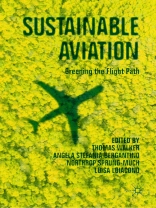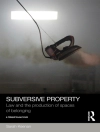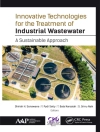This book highlights the latest research in the field of Sustainable Aviation. In recent decades, there have been considerable improvements in aircraft efficiency and noise reduction. However, with the demand for both passenger and freight transportation expected to increase significantly in future years, the aviation sector is becoming a growing source of environmental problems and a major contributor to global warming.
Focusing on the need to address this mounting problem, this book discusses important new trends and outlines likely future developments in carbon emission reduction, carbon trading, and the impact of emerging technologies, as well as social, legal, and regulatory changes as they pertain to the aviation sector.
The book offers an invaluable reference guide for practitioners, regulators, academics, and students alike, in fields ranging from business and engineering to the social sciences. It can be used as a textbook, and will benefit anyone interestedin the future of aviation and our planet.Tabla de materias
Chapter 1. Sustaining Flight: Comprehension, Assessment, and Certification of Sustainability in Aviation.- Chapter 2. Boulding, Brundtland, economics, and efforts to integrate air transportation policies into sustainable development.- Chapter 3. Environmentally Sustainable Air Transport: A Focus on Airline Productivity.- Chapter 4. The analysis of the sustainability commitment formulation and implementation for the selected airlines.- Chapter 5. Environmental Policies in European Aviation: A Stakeholder Management Perspective.- Chapter 6. Market Based Measures: the European Union Emission Trading Scheme and the Carbon Offsetting and Reduction Scheme for International Aviation.- Chapter 7. Impact of Air Transport on the Noise Level in the City of Sofia.- Chapter 8. Social dimensions of aviation on sustainable development.- Chapter 9. An element-by-element approach for a holistic estimation of the airport carbon footprint.- Chapter 10. Can laboratory experiments help in evaluating emission trading schemes? A pilot experiment on aviation allowances. Lessons to be learned.- Chapter 11. Milestone of Greening the Flight Path: Alternative Fuels.- Chapter 12. External benefits of smart payment tools for airport train services.- Chapter 13. Sustainable Alternative Air Transport Technologies.
Sobre el autor
Thomas Walker is Full Professor of Finance at Concordia University, Canada. Having worked for various international firms, he is an active consultant and has published more than 50 journal articles and books.
Angela Stefania Bergantino is Full Professor of Transport Economics at the University of Bari, Italy. She is an active consultant and has authored over 50 peer-reviewed articles on public economics, transport economics, and regulatory issues.
Northrop Sprung-Much is a Ph.D. candidate in Finance at the John Molson School of Business, Concordia University, Canada. His main research interests are in risk management, carbon trading, and environmental economics.
Luisa Loiacono holds a Master of Science in Management from the University of Bari, Italy and a Master in Green Management from Bocconi University, Italy. Her research interests include carbon trading, environmental politics, and sustainable aviation.












